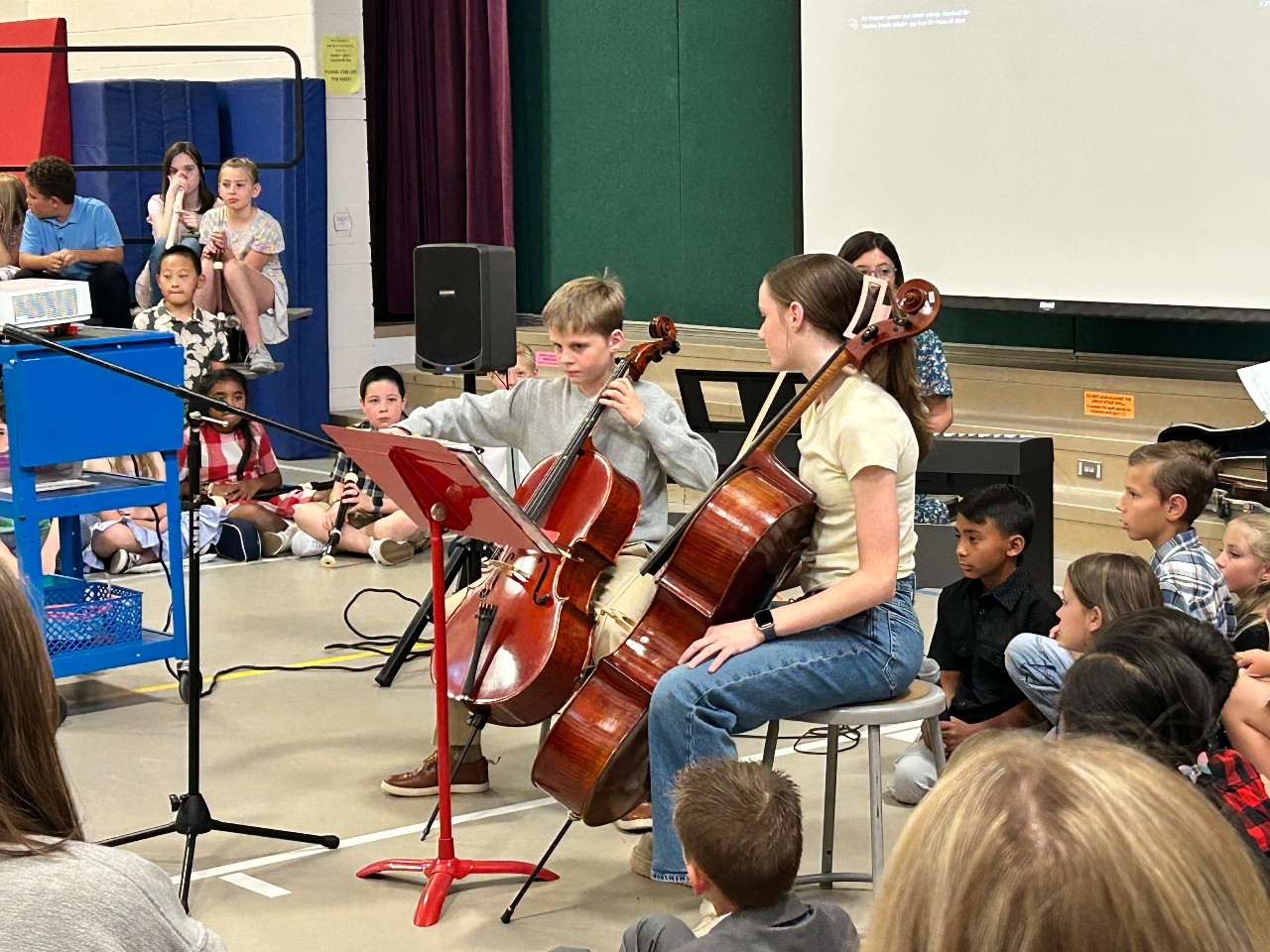First and second grades further develop their control of rhythm and sound by utilizing the voice and a variety of percussion instruments. They explore the acts of creating and communicating music through performance as well as literacy.
In third grade, students explore musical concepts via an instrument that requires and develops fine-motor skill the recorder! The use of musical literacy, rhythm, pitch, timing, and listening all come together as students use their recorders to master several well known songs as well as compose their own.
The fourth and fifth graders continue to create, perform, and listen to music. They explore the fundamentals of three of the most influential and widely used instruments in today's music, guitar, drum set, and keyboard.
Let's make some music!
Philosophy
Music is an extraordinary realm in which to reach out to learners. Every person is touched by music every day, and it is a genuine blessing to be a part of making music. While the links music has with the creative and cognitive functions of the brain are mysterious, it is certain that involvement in music is beneficial for everyone.
Although the intricacies of music are complex, they all break down to three categories of actions: listening, creating, and performing. Music is an unavoidable component of every-day life. As students experience music throughout their lives, they choose a variety of ways to participate in music. They may become involved in music on many different levels, including composing, arranging, performing, recording, producing, teaching, or even consuming and listening. It is my goal to equip all students to successfully pursue any lifelong involvement in music that they choose.
